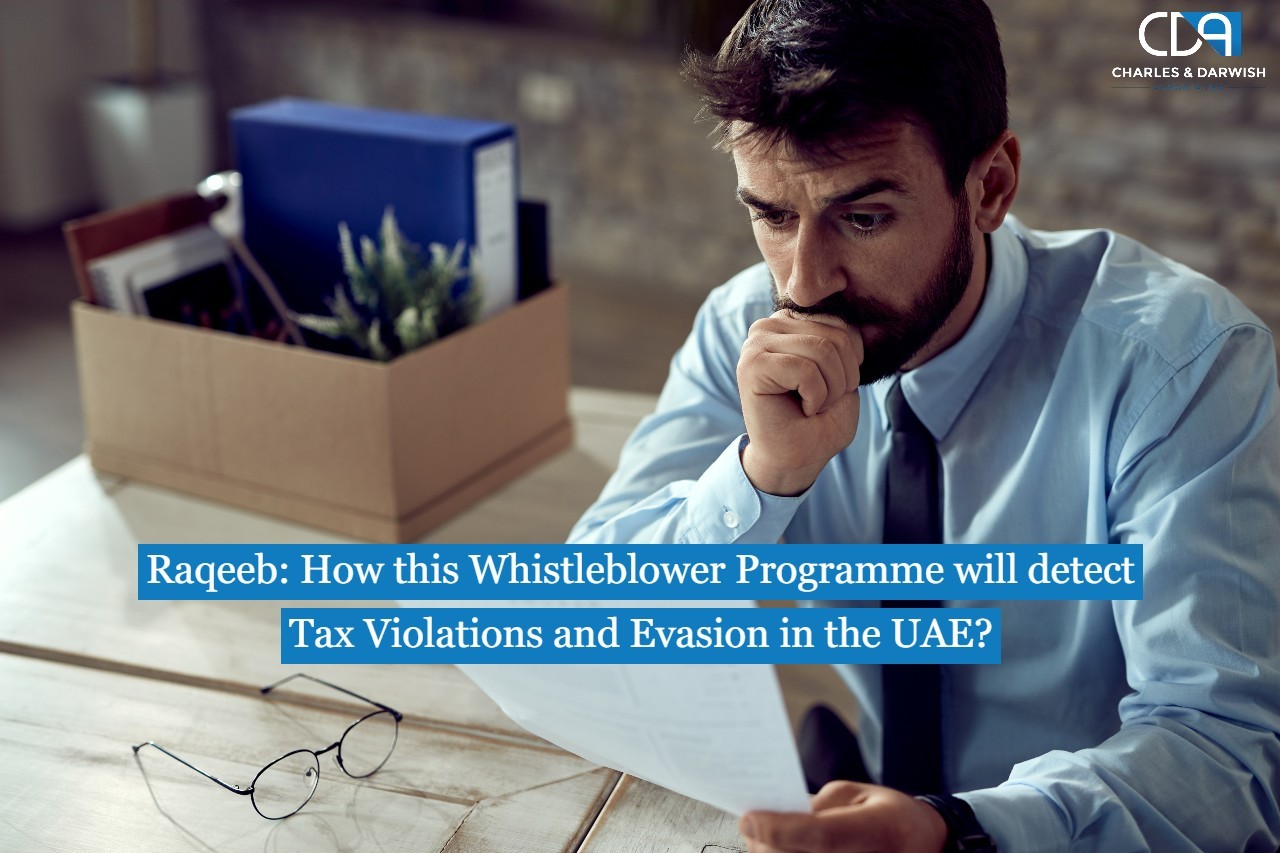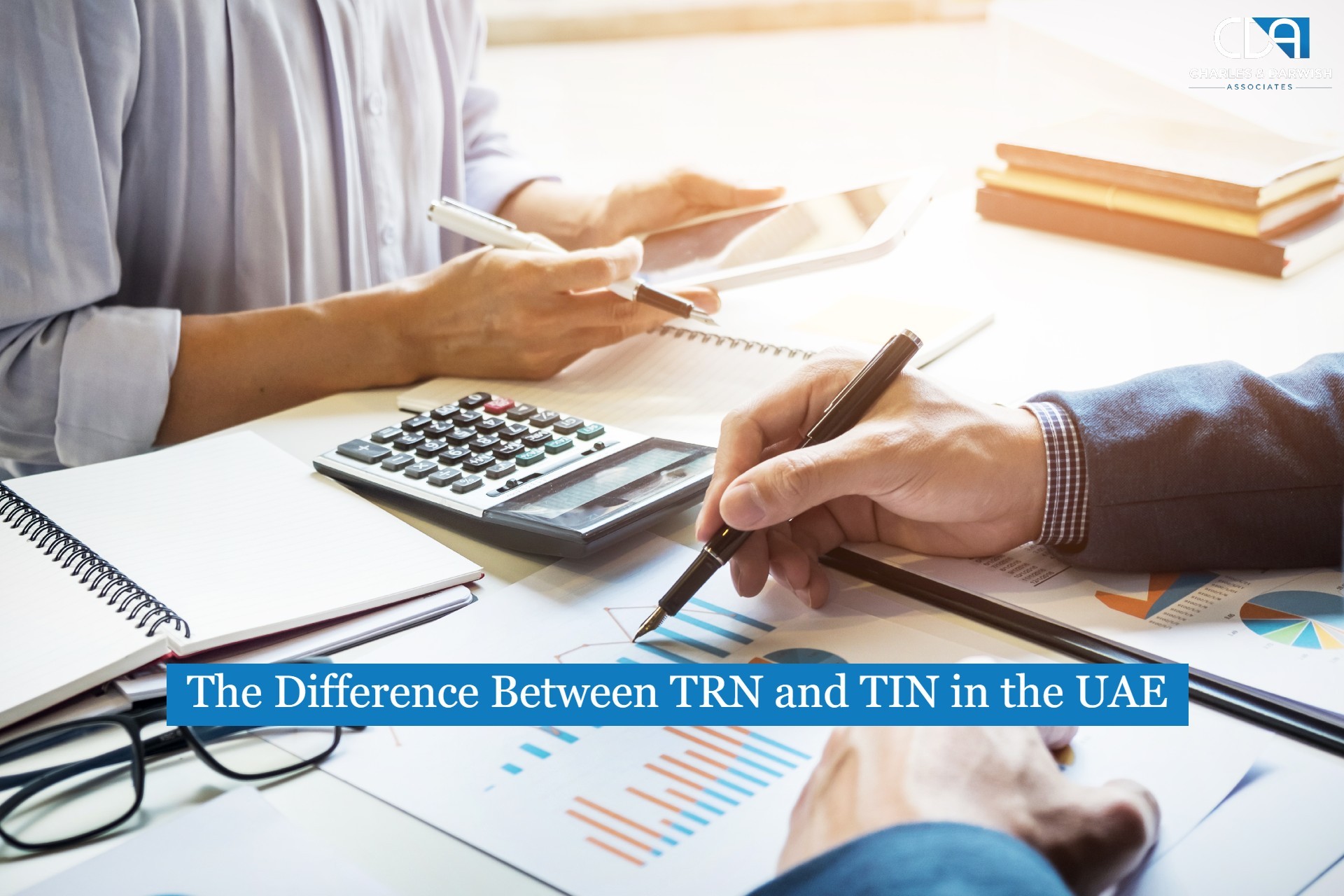All about Raqeeb: How this Whistleblower Programme will detect Tax Violations and Evasion in the UAE?
The UAE has been known for the tax-friendly legislations and regimes that it has introduced, thereby making it an attractive business landscape for investors and entrepreneurs all over the world. This landscape has taken the UAE to new heights on a global level, whereby there has been a major boom in the UAE market. Most of the entities look up to the UAE to set up their businesses or branches to get the tax benefits.
Along with the friendly tax legislation, there are certain stringent tax regulations that are to be complied with by the entities. The increase in the number of business entities has also increased the risk of tax evasion and violation of tax regulations. The UAE, in order to monitor such activities and to prosecute such entities involved in tax evasion, has introduced a programme called “Raqeeb” whereby such entities would be detected and would be charged with penalties. In this blog you can get a summary of the programme.
What is meant by whistleblowing under the Raqeeb programme?
In order to detect tax-related illegal activities and evasion, the Cabinet Ministers of the UAE have introduced this mechanism whereby the FTA would be required to follow up and investigate tax evasion and other illegal activities related to tax based on the leads “information” received in relation to the non-compliance by any natural or juridical person. The informants of such leads will also be paid with monetary benefits.
You can also read: What Is Double Taxation Avoidance Agreement (DTAA)?
What is the Need for the Programme?
The main objective of the introduction of such a whistleblowing programme is to increase the awareness of tax compliance among the taxpayers, stakeholders, and other responsible entities. The implementation of this programme will enable the FTA to detect the entities not complying with the legislation, whereby strict action could be taken against such entities.
Who is considered an informant under the Raqeeb?
An “informant” could be any person who has valid and relevant information in relation to any illegal activities that are related to tax or any tax evasion or non-compliance by any natural or juridical person.
What kind of information is considered as a lead and eligible to be reported to the FTA?
Under the Raqeeb, the information along with the documents that would be received by the natural person related to the following will be considered as eligible:
- If any natural or juridical person is suspected of any tax evasion where the false information has been included in the tax returns or where the registration under the tax has not been done, or
- If any natural or juridical person is suspected of any kind of non-compliance with the tax regime, regulations, or procedures, where there might be non-issuance of tax invoices or tax invoices without relevant amounts, or collection of tax not conducted, etc.
Apart from the above, to consider the information as a lead, the information must be supported by adequate evidence, which could then be submitted to the FTA for further procedures. The informant will also be required to provide further related information about the same person if received by the informant.
You can also read: All about Audit report: Its Elements and Types
Identity of the Informant
Under the programme, the informant is required to provide his or her identity for verification of the information received. There is no such provision where the informants can provide any anonymous information to the FTA, and hence they must provide all the relevant information related to the identity.
FTA assures that the identity of the informants would not be shared with any other person or the person against whom the information is provided, thereby maintaining the confidentiality of the informant. Along with the submission of the information to the FTA, the informant is required to agree to and sign the Non-Disclosure Agreement, thereby protecting the information against which the monetary rewards may also be paid.
Eligibility for the Monetary Rewards
In order to encourage the society and the persons to report the matters related to tax evasion and illegal activities, under the programme, monetary rewards are also provided to the informants based on certain eligibility criteria. The reward amount would be subjected to the tax amount to be received from the reported person.
Eligibility for the reward would be based on the following criteria, which are to be met:
- The lead must be must not be the information already received by FTA along with it being accurate and credible.
- The form must be accurate, sufficient and complete.
- The collected tax amount from the person must be more than AED 50,000.
- The person being reported must have exhausted all objections and appeals.
- The criteria related to an informant must also be met.
How can CDA Assist in Tax Compliance?
CDA’s team of tax experts has already geared up to provide the tax-related assistance to the entities in the UAE. The entities can get 24/7 assistance from our tax professionals, whereby you can stay compliant with the compliance framework and avoid any circumstances of penalties. The well-equipped team will always keep you posted regarding the new tax updates, thereby enabling you to make the required changes. Along with that, our expert would assist you in implementing all the possible deductions and reliefs possible.
To know more about the personalised tax services, connect with us now.

Mitesh Maithia
Tax Manager
Mitesh is a Tax Professional with expertise in direct, indirect, and international taxation, including transfer pricing, since 2018. Passionate about making complex tax matters simple, he shares insights to help businesses stay compliant and forward-looking.













